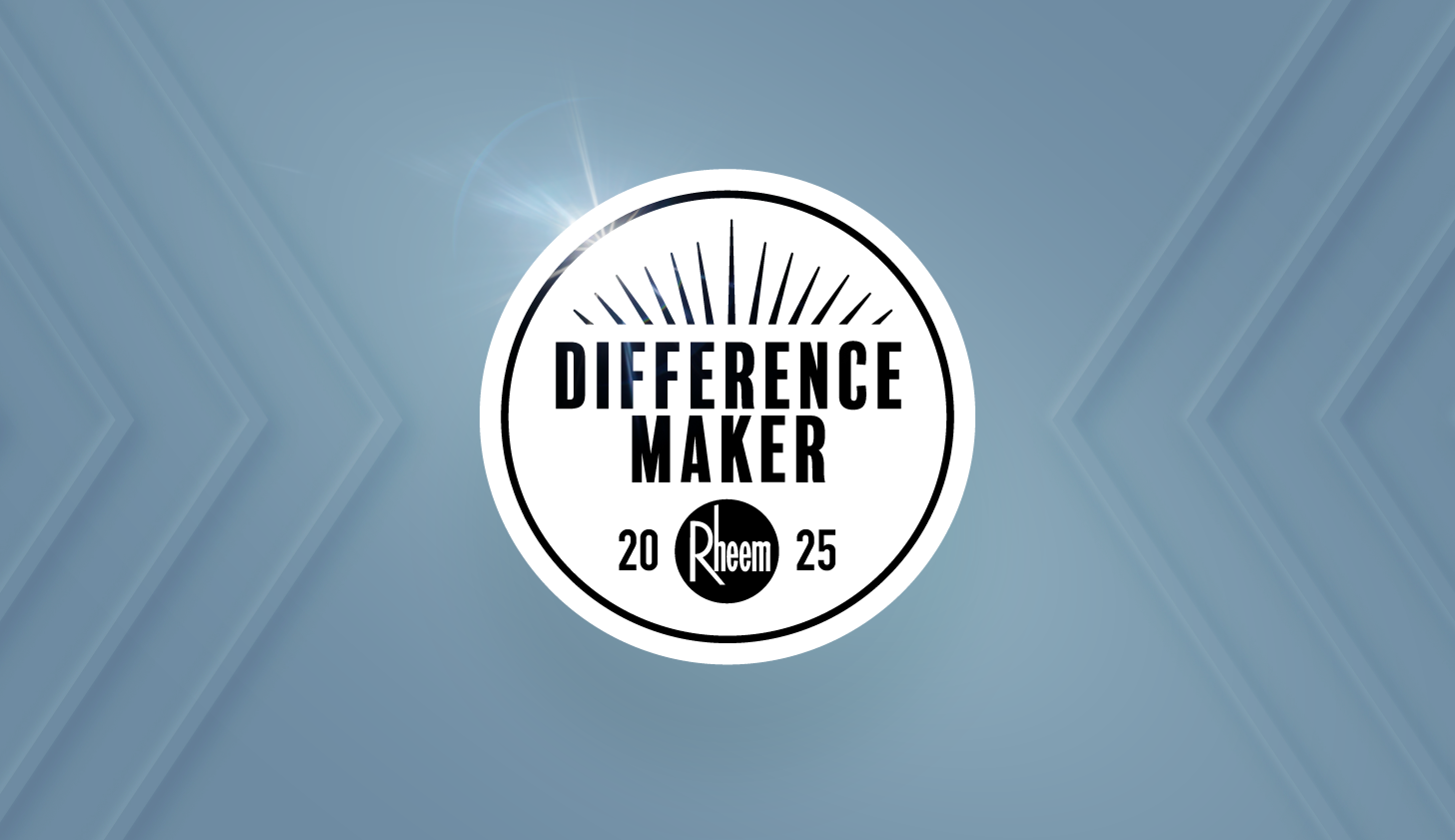What to Know Before Starting a Career in the Trades
August 14, 2025



Working in the trades can unlock a long, fulfilling, and rewarding career. But like anything, getting started is the hardest part.
What is working in the trades really like? And what does it take to be successful and build a solid, lifelong career in a business that is always evolving?
We asked the tenured Dennis Tisch, regional sales manager at Rheem, on the advice he would give to people considering a career in the trades. With almost 17 years under his belt at Rheem, here’s what he said.
Why do you think more people should consider working in the trades?
Dennis Tisch: The trades, particularly HVAC, are a wonderful career choice for anyone with a willingness to work hard, learn and show up to work every day. We learned during the Covid-19 pandemic that the trades are an essential industry that impacts consumers lives and health. So, working in the trades means that you can make a real positive impact on people.
Additionally, the trades are jobs that cannot be outsourced, so anyone with some level of skill will always be employable. And it can be a very financially awarding career. It’s also a growing industry, which makes it a very good investment. And the key investment is in its people.
Besides technical knowledge, what skills are important in the trades?
Dennis: Reliability. Of all the skills and abilities, reliability is number one. If your employer can count on you to be at work, on time every day you are scheduled, you are automatically bringing great value to that business. Most employers will have patience and be willing to teach someone who they can count on day in and day out. The greatest technician in the HVAC world has no value if they don’t show up. The importance of reliability cannot be overstated.
Communication is also important: the ability to respectfully reply to a consumer’s question, create eye contact, and articulate your thoughts effectively after listening to customers. Being able to effectively share your thoughts, explain the situation, outline options to both your service manager and the consumer builds confidence. Confidence leads to greater responsibility and better wages.
And organization skills are, too: the ability to organize your thoughts to help you communicate, the ability to organize your notes to have accurate records, ability to maintain an organized service/install vehicle to have an efficient and safe workspace.
How can people just starting out learn the technical side of the trades?
Dennis: Tech schools are available in almost every community and more popular than ever; however, there are many outlets for training.
Large contractors have their own “training schools,” which they sponsor and conduct and allows them to build their own teams. Smaller contractors will take a person with a willing-to-learn attitude and proven reliability and allow them to learn on the job, starting out as a “helper” but participate and learn the trade while being paid.
Rheem contractors also have access to multiple entry-level training material from an extensive online catalog to Interplay Learning, which allows a student to learn virtually. And the internet is filled with independent training material available to anyone willing to do some research.
What is your No. 1 piece of advice for someone considering a job in the trades?
Dennis: With the risk of overstating the fact, if you show up, with a good attitude, willing to learn, and embrace being part of a team—you will rapidly advance in the trades. Advancement leads to more opportunities, greater responsibilities, better pay, and a career that is rewarding. Most of your visits to homes are when there is distress in people’s lives. With empathy you can turn a bad day into a good one by solving their problem.
And if they need to purchase a new system, often something that was unplanned, your professionalism and confidence in assuring a customer they are making the right choice regarding equipment can bring great relief to them as well. You may never return to that home during your career; leaving a positive impression matters. So, treat them the same way you would want someone to treat your family.






